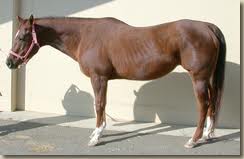|
Equine nutrition and knowing your horses normal eating behavior
With equine nutrition it is important to know a horse’s normal feeding behavior to determine if a horse is going "off feed" and not eating normally. A change in a horse's eating habits can be a signal to the owner or farm manager that something may be wrong. A horse’s nutritional and health status should be monitored at least once per day. Things to look for include injuries, a change in attitude, or a change in feeding behavior such as appetite. The fecal matter of a horse should also be examined daily to determine if the appearance, color, or texture is normal or abnormal.
Body weight and body condition scoring are excellent methods of monitoring equine nutrition and health status. Weighing and scoring a young horse every week or a mature horse at least once a month can ensure that the proper feed amounts are being fed. Weighing and scoring may also indicate the health status. Excessive fat or a high body condition score is usually a result of overfeeding.
Reasons Horse Owners Overfeed
1.They feel a sense of satisfaction in feeding a horse.
2.They feed horses that are not getting adequate daily exercise and use at the same rate they would feed horses that do.
3.Fat hides blemishes on a show or sale horse, and fat horses generally sell better than thin horses.
4.They think pregnant mares need more feed even before the last trimester.
5.The dominant horse in a group of horses is eating all the feed.

Indicators of a Thinning Horse
Weight loss or a low body condition score may indicate poor equine nutrition or health problems. For example, if a weanling horse is losing weight, the feed may need to be increased to meet growth requirements. Weight loss also may be an indication of illness. A thin horse may be an indication of:
•poor quality or inadequate amounts of forage and other feed
•dental problems (floating teeth can usually resolve this problem)
•parasites
•not feeding enough during lactation or during intense work--times when energy needs increase
•hot/humid weather, which increases energy needs and decreases feed intake
•disease, which can decrease feed intake or utilization
•being low in the pecking order, resulting in being chased away from the feed bucket or eating little due to fear.
Good quality hay is essential, since hay constitutes a large majority of the horse’s diet. Several factors influence the nutritional quality of hay. Any of the common hays can be fed to horses, but what's most important is nutrient value in relation to the cost of the hay.
As in people,
food and exercise seem to go hand in hand
SOURCE - A. Griffin
Return from Equine nutrition to Horse Riding Connection
|
